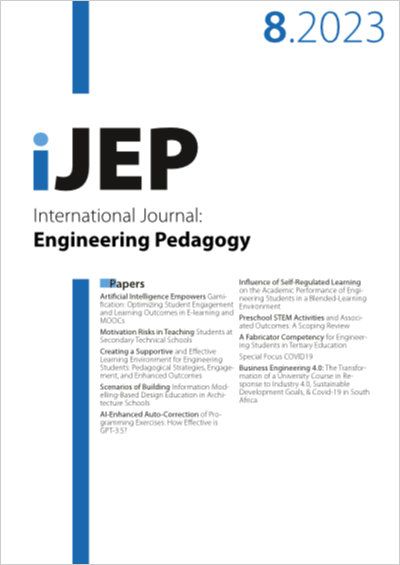Influence of Self-Regulated Learning on the Academic Performance of Engineering Students in a Blended-Learning Environment
DOI:
https://doi.org/10.3991/ijep.v13i8.38481Keywords:
blended learning, competency-based education, educational innovation, higher education, self-regulated learningAbstract
The pandemic environment experienced for more than two years strongly accelerated the use of technological resources to support learning. Using these resources made it evident that higher education students expecting to succeed academically must master digital strategies. The combination of learning experiences and autonomous work required students to selfregulate their learning well to attain the expected performance levels for competitive work that characterizes the engineering profession. So, we designed an exploratory study to evaluate the effect of self-regulated learning on mechanical design students in a Blended Learning (BL) environment using Flipped Learning/Classroom didactics (FPC). Fifty-one students studying under two different educational-model curricula participated. The research employed a mixed methodology. For the quantitative part, the students’ academic grades and results of the Motivation and Learning Strategies Questionnaire (MSLQ SF) applied in its short Spanish version were employed. A questionnaire for self-study management and a competency observation rubric based on the Marzano & Kendall New Taxonomy were used for the qualitative part. The results showed that the students with the best levels of self-regulated learning in BL and FPC contexts obtained the best results in cognitive, organizational, and motivational resource management strategies. They also improved their disciplinary skills and had a higher academic performance.
Downloads
Published
How to Cite
Issue
Section
License
Copyright (c) 2023 Luis Vargas-Mendoza, Katherina Gallardo

This work is licensed under a Creative Commons Attribution 4.0 International License.



